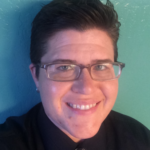
Katheryne Young
Assistant Professor of Sociology, University of Massachusetts at Amherst
Areas of Expertise
- Criminal procedure
- Jury selection
- Trial evidence
- Race and gender
- Class bias
- Police-citizen interactions
Key Findings
- The best indicator of whether a police officer would make a traffic stop was the driver’s demographics. MORE
- Young, Black, and male drivers were stopped the most. MORE
- Black drivers are more likely to attribute stops to racially based motivations and question police officers legitimacy. MORE
- Both Black and White citizens are more likely to question the legitimacy of a traffic stop if the police officer behaved rudely. MORE
- Forty-percent of Black respondents said they “sometimes” or “often” avoid neighborhoods for fear of being targeted by the police compared to 12% of White respondents. MORE
- In neighborhoods, being “clean,” (no connection to crime) or “dirty,” (any connection to crime) can influence whether or not an individual is stopped. MORE
Biography
Kathryne Young, Assistant Professor of Sociology at the University of Massachusetts at Amherst, is an expert in criminal procedure, parole, rights assertion, jury selection, trial evidence, rural law, race, gender and class bias, sexual orientation and police-citizen interactions.
Young worked at the San Joaquin County District Attorney’s Office, the Federal Defender’s Office for the Northern District of California and Stanford Law School’s Wrongful Convictions Clinic and Supreme Court Litigation Clinic. Her ethnographic work on legal consciousness in the policing of Hawaiian cockfighting was named the year’s top article by the Law & Society Association and the American Sociological Association’s Sociology of Law section. Her work on the role of sexual orientation in jury selection has been cited by the Washington State Supreme Court.
She has been published in numerous academic journals including Law & Society Review, Harvard Law Review and Federal Sentencing Reporter.
Young received her J.D. from Stanford Law School, Ph.D. in Sociology and B.A. in American Studies from Stanford University.